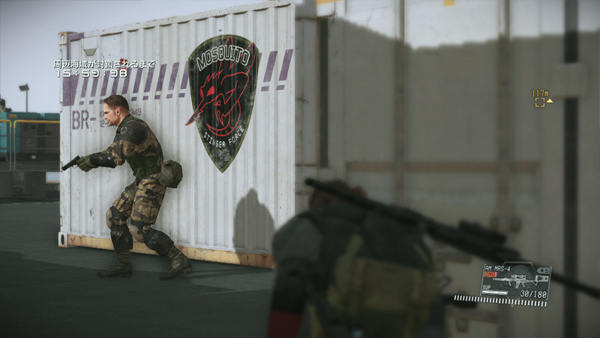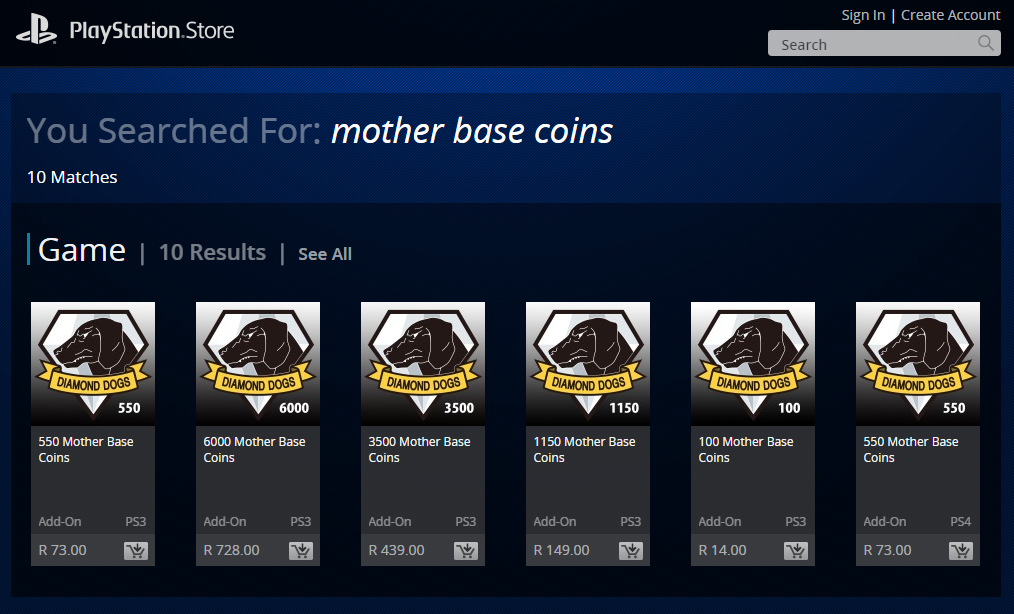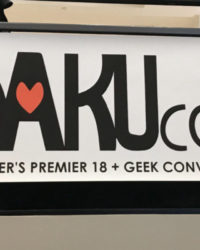 Yesterday I read about a… well we’ll call it a questionable microstransaction opportunity from Metal Gear Solid V, specifically targeted towards multiplayer action. In multiplayer mode, players operate FOB’s (short for forward operating bases). And much of the play relies on infiltrating other players’ bases and causing as much havoc as possible through event FOB missions. Of course when a FOB gets raided, there’s going to be some damage. There’s going to be a loss to the player that got raided that has to be replaced. So what can a concerned FOB operator do to gain some peace of mind during these troubling raid events? They can spend real money for fake money to insure their precious bases.
Yesterday I read about a… well we’ll call it a questionable microstransaction opportunity from Metal Gear Solid V, specifically targeted towards multiplayer action. In multiplayer mode, players operate FOB’s (short for forward operating bases). And much of the play relies on infiltrating other players’ bases and causing as much havoc as possible through event FOB missions. Of course when a FOB gets raided, there’s going to be some damage. There’s going to be a loss to the player that got raided that has to be replaced. So what can a concerned FOB operator do to gain some peace of mind during these troubling raid events? They can spend real money for fake money to insure their precious bases.
In digital software, especially in gaming, we’ve all begun to grow accustomed to the now-standard revenue scheme called the microtransaction. For the sake of the uninitiated: A microtransaction is any kind of purchase a player makes for an in-game benefit, from cosmetic changes like costumes and skins to game-changing items like powerful weaponry or even an expansion pack.
Yes, it’s a fancy word for DLC with less emphasis in the C.
Even on the surface it smells like bullshit, and we’ve all gone for it. I’ve paid for character unlocks and costumes and skins and a number of other things for the games in my collection, feeling both dirty and satisfied at some sort of perceived value simultaneously. See that’s how they get you – they set the price low enough so that it doesn’t seem so bad to pay it, and makes you forget that you probably already spent upwards of $50 on the game you’re playing. And if the game is free to play up front, you’re even more inclined to purchase DLC because “hey, I didn’t actually pay for this game to begin with.”
Microtransaction riddled freemium games… have a special place of scorn in my heart, but this post isn’t about that particular scourge right now.
I’m not saying it’s all bad. Anyone who paid for Burial at Sea for BioShock Infinite for example is not complaining about the money the spent for that particular nugget of DLC. It got rave reviews across the board. But then there are others that fall far short of that mark – hell, fall short of anything positive at all. Remember World of Tanks‘ custom paint job that you could buy as premium, content? And remember when that premium content expired?
So it’s easy for us to traverse from the good to the bad. But then there’s the outright strange. So where was I again? Right…
 I kid you not my friends, you can now sign up for an insurance policy with Konami to compensate you for any losses during a raid on your base. It insures your base from theft. The player doing the raiding still keeps all of their spoils, but you, the hapless victim, are entitled to compensation. See details right from the MGS:The Phantom Pain website.
I kid you not my friends, you can now sign up for an insurance policy with Konami to compensate you for any losses during a raid on your base. It insures your base from theft. The player doing the raiding still keeps all of their spoils, but you, the hapless victim, are entitled to compensation. See details right from the MGS:The Phantom Pain website.
It’s actually a fairly original idea as far as player services in multiplayer games go, but here’s the issue – insurance is paid for with MB coins, a resource that is sporadically given out for free as bonuses, but has a very real exchange rate with real world currency. I couldn’t find anything on the US PSN Store, but the South African PSN Store charges R 14.00, which is a little over $1 US. Here’s official word from Konami:
Your FOBs are always at risk of coming under attack. Now, you can rest easy with FOB insurance (paid service). If you sign up for insurance, then during the insurance period you will be compensated for any materials and staff lost due to rival infiltrations.
* Staff/materials stolen by the rival will in fact remain on your base, and an identical amount of staff/materials will be handed over to the rival instead.
* MB Coins are purchased with real money, but free MB Coins are also distributed periodically as login bonuses, etc.
* The following are not covered by FOB insurance:
・Staff/items that are not fully your property, such as abducted staff being held in your Brig (FOB)
・Wounded staff (staff lost due to death or extraction will be compensated)
・Staff used by you to deploy in defense of the FOB (neither death nor extraction will be compensated)
・Nuclear weapons
Well hell, my nuclear weapons aren’t covered? Lame. So you kids take that in, and let us know what you think about this next level in microtransactions in the comments below. How would the pitch go when the insurance salesperson comes to your house? “Do you ever worry that all your base are not belong to you? I’m selling peace of mind.”
But how important is that piece of mind? I’m not sure how many people would take part in this insurance program, especially at the cost of real money. Granted, it’s only about a buck or so for 100 coins but there’s no word on how many coins a insurance policy would be. The risk of any loss at the base is part of the multiplayer experience though, and I’m fairly certain that those playing Metal Gear Solid V already accept that as part of the mechanic. Whenever a base does get hit a player is still only feeling a… Phantom Pain. It’s a weird safety net addition to the game, and as all safety nets do, in my opinion it’ll result in slightly more reckless play. Maybe that was the plan to begin with?
In the meantime I will be contemplating using real money for virtual money to protect virtual things from thievery. Maybe my insurance company could bundle this with my house and car?
Tushar Nene
Staff Writer
@tusharnene
















